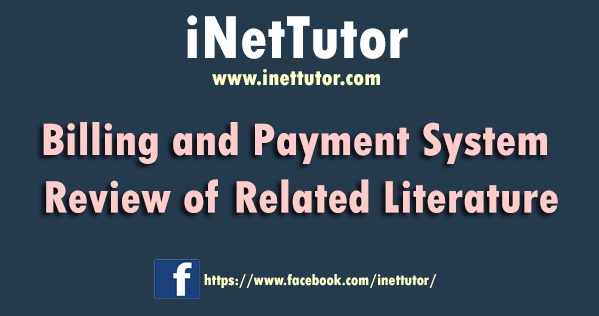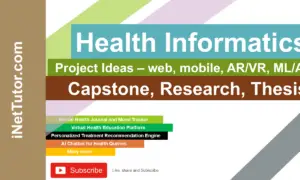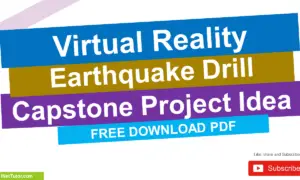Top Web3 Project Ideas for Academic Research
Introduction
Table of Contents
Web3, the next evolution of the internet, is transforming various industries, and education is no exception. Built on blockchain technology, Web3 offers decentralized, secure, and transparent systems that can revolutionize how we approach learning, credentialing, and academic administration.
For students pursuing academic research, thesis, and capstone projects, exploring Web3 presents a unique opportunity to contribute to the future of education. By developing innovative project ideas around Web3 technologies, students can address current challenges in the educational system and pave the way for new solutions.
As we look to the future, Web3 technologies such as blockchain, decentralized apps (dApps), and non-fungible tokens (NFTs) are becoming increasingly relevant in education. These technologies hold the potential to reshape how educational institutions manage data, deliver content, and validate achievements, making them essential topics for academic exploration.
What is Web3 and How It Relates to Education
Web3 represents the third generation of the internet, characterized by decentralization, transparency, and user control. Unlike Web2, which is dominated by centralized platforms, Web3 leverages blockchain technology to create a more open and secure internet where users own their data and digital assets.
At the core of Web3 are blockchain, decentralized apps (dApps), and non-fungible tokens (NFTs). Blockchain provides a secure and immutable ledger for recording transactions, making it ideal for industries requiring trust and transparency. dApps are applications that run on decentralized networks, offering enhanced security and resilience against censorship. NFTs are unique digital assets that represent ownership of items, ranging from art to academic credentials.
In education, Web3 has the potential to radically transform how institutions manage and deliver education. Blockchain can be used to create secure, tamper-proof academic records, making it easier to verify credentials. dApps can power decentralized learning platforms, giving students more control over their educational data and experiences. NFTs can be used to issue and verify academic achievements, ensuring authenticity and ownership.
The integration of Web3 into education systems promises to enhance transparency, security, and student empowerment, paving the way for a more equitable and innovative future in learning.
Programming Languages and Tools for Developing Web3 Projects
Developing Web3 projects involves a combination of traditional web development skills and specialized tools for blockchain and decentralized applications. Below are the key programming languages and tools used in Web3 development:
- Programming Languages
- Solidity: The most popular programming language for writing smart contracts on the Ethereum blockchain. Solidity is a statically-typed language influenced by JavaScript, Python, and C++.
- Vyper: Another language for Ethereum smart contracts, Vyper is designed to be simple and secure, focusing on readability and audibility.
- Rust: Used primarily for developing smart contracts on the Solana blockchain. Rust is known for its performance and memory safety, making it ideal for high-performance blockchain applications.
- Go (Golang): Often used for developing blockchain nodes and backend services. Go is efficient and easy to deploy, making it a popular choice for blockchain infrastructure.
- JavaScript/TypeScript: Essential for developing frontend interfaces for Web3 applications. With frameworks like React and libraries like Web3.js or Ethers.js, developers can interact with blockchain networks.
- Blockchain Platforms
- Ethereum: The most widely used blockchain platform for Web3 development. Ethereum supports smart contracts and is the foundation for many decentralized applications (dApps).
- Solana: Known for its high throughput and low transaction fees, Solana is a fast-growing blockchain platform for Web3 projects.
- Binance Smart Chain (BSC): A blockchain platform that offers low fees and fast transactions, popular for decentralized finance (DeFi) projects.
- Polkadot: A platform focused on interoperability between different blockchains, allowing multiple chains to communicate and share security.
- Development Frameworks and Tools
- Truffle: A development framework for Ethereum that provides tools for testing, compiling, and deploying smart contracts. It simplifies the development workflow for dApps.
- Hardhat: A flexible Ethereum development environment. It allows developers to run tests, deploy contracts, and debug Solidity code with ease.
- Remix: An online IDE for writing, testing, and deploying smart contracts in Solidity. Remix is beginner-friendly and widely used for Ethereum smart contract development.
- Ganache: A personal blockchain for Ethereum development. Ganache allows developers to create a local blockchain network for testing smart contracts.
- MetaMask: A browser extension that acts as a cryptocurrency wallet and gateway to blockchain networks. MetaMask enables users to interact with dApps directly from their browsers.
- Web3.js/Ethers.js: JavaScript libraries that provide an interface for interacting with the Ethereum blockchain. These libraries are essential for integrating smart contracts with web applications.
- IPFS (InterPlanetary File System): A decentralized storage network used to store and share files across a distributed system. IPFS is commonly used for storing data in dApps.
- Decentralized Databases
- The Graph: A decentralized protocol for indexing and querying data from blockchains. It allows dApps to retrieve data efficiently from blockchain networks.
- OrbitDB: A distributed, peer-to-peer database built on top of IPFS. OrbitDB is useful for applications that require decentralized and offline-capable databases.
- Testing and Security Tools
- MythX: A security analysis tool for Ethereum smart contracts. It helps developers identify vulnerabilities and ensure their contracts are secure.
- OpenZeppelin: A library of reusable smart contracts. OpenZeppelin provides tested and secure code for common patterns like ERC20 tokens and access control.
- Deployment and Infrastructure
- Infura: A service that provides easy access to Ethereum and IPFS networks without running a full node. Infura is widely used for dApp deployment.
- Alchemy: A development platform that provides tools and infrastructure for building scalable dApps. Alchemy offers APIs for interacting with blockchain networks.
- Moralis: A complete development platform for Web3 applications. Moralis simplifies backend development by offering features like user authentication, real-time notifications, and database management.
These programming languages and tools provide a comprehensive ecosystem for developing Web3 projects, from writing smart contracts to deploying decentralized applications on various blockchain platforms.
Web3 Project Ideas
- Decentralized Student Records System
- Description: Develop a blockchain-based platform to securely store and verify student records and credentials.
- Tools: Ethereum, Solidity, Truffle, IPFS.
- NFT-Based Academic Certifications
- Description: Create a platform that issues NFTs as academic certificates, making them tamper-proof and easily verifiable.
- Tools: Ethereum, Solidity, OpenZeppelin, MetaMask.
- Blockchain-Powered Peer Review System
- Description: Implement a decentralized peer review system for academic papers, ensuring transparency and fairness.
- Tools: Ethereum, Vyper, The Graph, IPFS.
- Smart Contract-Based Course Enrollment
- Description: Automate course enrollment and fee payments using smart contracts, streamlining administrative processes.
- Tools: Ethereum, Solidity, Hardhat, Web3.js.
- Decentralized Learning Management System (LMS)
- Description: Develop an LMS on a blockchain that gives students control over their educational data.
- Tools: Ethereum, Solidity, React, Web3.js.
- Blockchain Voting System for Student Councils
- Description: Create a transparent and secure voting system for student council elections using blockchain.
- Tools: Ethereum, Solidity, MetaMask, Truffle.
- Decentralized Scholarship Fund
- Description: Build a platform where donors can contribute to a scholarship fund managed by smart contracts.
- Tools: Ethereum, Solidity, Hardhat, MetaMask.
- Token-Based Reward System for Academic Achievements
- Description: Implement a reward system where students earn tokens for academic achievements that can be redeemed for rewards.
- Tools: Ethereum, Solidity, OpenZeppelin, React.
- Blockchain-Based Attendance Tracking
- Description: Create a decentralized application to track and verify student attendance using blockchain.
- Tools: Ethereum, Solidity, Web3.js, IPFS.
- Decentralized Academic Publishing Platform
- Description: Develop a platform for publishing and distributing academic papers using a decentralized network.
- Tools: IPFS, Ethereum, Solidity, OrbitDB.
- Blockchain-Enabled Research Funding
- Description: Create a decentralized platform where researchers can raise funds through blockchain-based crowdfunding.
- Tools: Ethereum, Solidity, Truffle, MetaMask.
- Smart Contract-Based Internship Matching
- Description: Implement a platform that uses smart contracts to match students with internships based on skills and interests.
- Tools: Ethereum, Solidity, Hardhat, React.
- Blockchain Credential Verification System
- Description: Build a system where employers can easily verify the authenticity of academic credentials through a blockchain ledger.
- Tools: Ethereum, Solidity, OpenZeppelin, Web3.js.
- Decentralized Tutoring Platform
- Description: Create a platform where students can connect with tutors in a decentralized manner, with payments handled through smart contracts.
- Tools: Ethereum, Solidity, React, MetaMask.
- Blockchain-Based Academic Journal
- Description: Develop a decentralized academic journal where research papers are stored on the blockchain for permanent and transparent access.
- Tools: IPFS, Ethereum, Solidity, The Graph.
These project ideas leverage the capabilities of blockchain and Web3 technologies, providing innovative solutions for academic and educational challenges. Each project also offers a learning opportunity for students and researchers to explore the emerging field of decentralized technology.
Challenges and Considerations in Implementing Web3 in Education
- Technical and Infrastructural Challenges
Implementing Web3 technologies in education requires significant technical infrastructure and expertise. Blockchain networks demand considerable computational power and storage, which can be costly and complex to maintain. Additionally, integrating Web3 with existing educational systems may require overhauling legacy systems and ensuring compatibility with new decentralized applications (dApps). The lack of widespread understanding and technical knowledge in blockchain technology can also hinder its adoption in educational institutions.
- Legal and Regulatory Considerations
The adoption of Web3 in education introduces legal and regulatory challenges, particularly around data ownership, privacy, and compliance. Educational institutions must navigate complex legal frameworks governing the storage and sharing of student data. Blockchain’s immutability can conflict with regulations like the General Data Protection Regulation (GDPR), which grants individuals the right to have their data erased. Moreover, the decentralized nature of Web3 complicates jurisdictional issues, as data stored on a blockchain may be spread across multiple countries, each with different legal requirements.
- The Digital Divide and Access to Web3 Technologies
Web3 adoption could exacerbate the existing digital divide, particularly in regions with limited access to the internet and digital devices. The infrastructure required to access Web3 technologies, such as high-speed internet and modern computing devices, is not universally available. This disparity could prevent underprivileged students and institutions from benefiting from the advancements Web3 offers, leading to unequal educational opportunities. Ensuring inclusive access to Web3 technologies is a critical challenge that needs to be addressed.
- Ethical Concerns in Decentralizing Educational Data
Decentralizing educational data on blockchain networks raises ethical concerns related to data privacy and security. While blockchain offers enhanced security through encryption, the permanent nature of data stored on a blockchain can pose risks if sensitive information is not adequately protected. Additionally, decentralization shifts control from centralized authorities to individuals, which can create challenges in ensuring accountability and preventing misuse of data. There is also the ethical dilemma of who owns the data and how it can be used, especially in the context of student records and academic credentials.
Conclusion
Web3 has the potential to revolutionize the education sector by introducing decentralized, transparent, and secure systems for managing educational data, credentials, and resources. Its ability to empower students, educators, and institutions with greater control over data and processes could lead to more personalized and equitable educational experiences. As we stand on the brink of this new technological era, it is an exciting time for students and researchers to explore the myriad possibilities that Web3 offers. By integrating these innovative ideas into their academic work, students can contribute to shaping the future of education.
The future of education in the Web3 era is full of promise. With the right balance of technological advancements and careful consideration of ethical and regulatory challenges, Web3 can lead to a more inclusive and forward-thinking educational landscape. As we move forward, it’s essential to remain curious, innovative, and open to collaboration.
Readers are also interested in:
Capstone Projects and Thesis Titles for Information Technology
You may visit our Facebook page for more information, inquiries, and comments. Please subscribe also to our YouTube Channel to receive free capstone projects resources and computer programming tutorials.
Hire our team to do the project.


